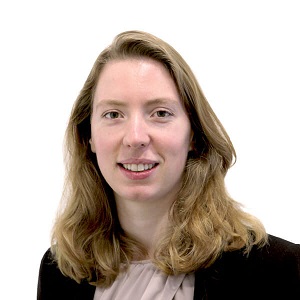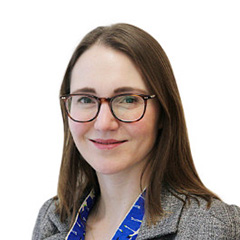Dame Sally Davies, UK Special Envoy on Antimicrobial Resistance, and James Anderson, Head of AMR and Corporate Government Affairs at GlaxoSmithKline, join the podcast to discuss the history of antibiotic use on humans, livestock and plants that brought us to our current crisis today. Plus, they provide an overview of engagement in this space to change behaviors around the use of antibiotics globally.
In this episode:
- What is antimicrobial resistance and why is it such a pressing issue?
- How the AMR Industry Alliance is combatting antibiotic overuse
- Consumers and investors hold power to change antibiotic usage
- The effects of inaction on antimicrobial resistance, and how we can change the trajectory
Transcript
Dame Sally Davies: The fast pandemic, I talk about a lobster in boiling water of COVID-19, and it’s making a lot of noise, and it’s waking everyone up to the threat that can come when healthcare goes wrong. Meanwhile, there’s this slow, creeping pandemic of resistance by the bugs and microbes to their treatments, whether it’s TB, malaria, HIV, fungi or indeed bacteria when it’s antibiotics that the resistance has developed to.
Alice Evans: I think in the UK at least, we are becoming more aware of being encouraged to use antibiotics more sparingly than of less indiscriminately when we get sick, which is of course part of the problem, that overuse in healthcare, but even the overuse in healthcare isn’t the only issue contributing to the problem, is it? We live in an ecosystem.
Dame Sally Davies: No, sadly you’re right, but over 40 percent of the UK’s total antibiotic use is in humans, chickens and pigs, and globally more than 70 percent of antibiotics goes into animals and fish, shellfish production as well as in crop-spraying. We have been making strides in this country. Between 2014 and 2017, our general practitioners reduced their use by 7.3 percent, so we are getting the message out there in this country. Meanwhile, our pig manufacturers have reduced their use … our chicken … I don’t know what the word is. Growers is not the right word, but the people who …
Dame Sally Davies: Well, I’m very worried about this because it is a development issue. At the moment, more people die of lack of access than resistance, but that’s going to change in the not too far future, and modern medicine and strong health systems underpin economies and development, so we need to help countries get this right. In 2016, the world agreed that every country would prepare a One Health National Action Plan. I think 132 countries now have plans. Another 50 or more are in development, but it’s easy to write a plan. It’s another thing to find the money and then make it happen, so everyone is trying to work on it, but it’s hard work, and it’s very difficult, and we need much more awareness in the professionals and in the public, and as countries develop, they inevitably need to use appropriately more antibiotics, so we also need to bring more antibiotics through, new ones, so that as the old ones become … The bacteria and fungi, et cetera, get resistance, there’s something else to move to, and we’re not winning like that, but we are seeing countries making big efforts. I’ll give you a couple of examples. India is consulting on an innovative piece of legislation to limit the concentration of antibiotic pollution. We need other countries to support them and introduce similar legislation. China saying that it will take out all antibiotics from animal feed before the end of the year and banning…
Dame Sally Davies: Yeah. There are … One has to congratulate these countries that are making big steps, and most of them are making them because they recognize the importance, but that means we’ve got to keep talking about it and finding the data and showing them. Others are shifting their behaviors because of either investors or consumers, so you <Indistinct> you have a role. We have a role.
Alice Evans: Thanks so much, James, and thanks, Catherine. I’ve really enjoyed this conversation, and I think there’s a lot of work to do, but a lot is being done, and I’m really excited that we’re going to get somewhere with this really important issue.
Michael Torrance: Thanks for listening to “Sustainability Leaders.” This podcast is presented by BMO Financial Group. To access all the resources we discussed in today’s episode and to see our other podcasts, visit us at bmo.com/sustainabilityleaders. You can listen and subscribe free to our show on Apple Podcasts or your favorite podcast provider, and we’ll greatly appreciate a rating and review and any feedback that you might have. Our show and resources are produced with support from BMO’s marketing team and Puddle Creative. Until next time, I’m Michael Torrance. Have a great week.
Disclaimer: The views expressed here are those of the participants and not those of Bank of Montreal, its affiliates or subsidiaries. This is not intended to serve as a complete analysis of every material fact regarding any company, industry, strategy or security. This presentation may contain forward-looking statements. Investors are cautioned not to place undue reliance on such statements as actual results could vary. This presentation is for general information purposes only and does not constitute investment, legal or tax advice, and is not intended as an endorsement of any specific investment product or service. Individual investors should consult with an investment, tax and/or legal professional about their personal situation. Past performance is not indicative of future results.






